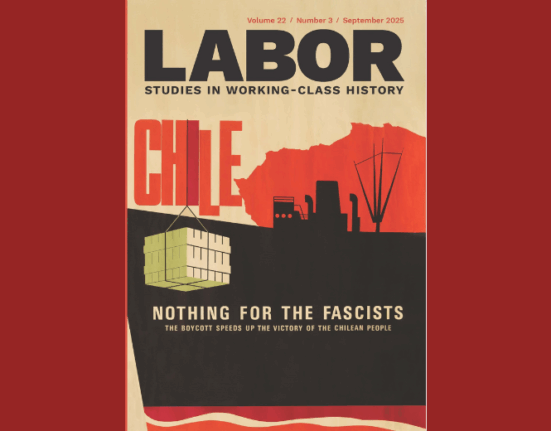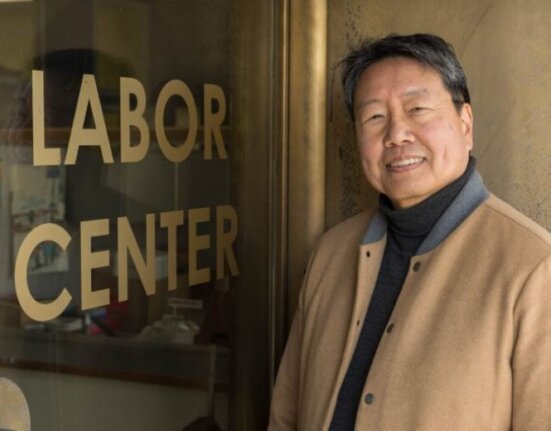A number of Tennessee’s politicians and business leaders are baffled and frustrated that autoworkers at Chattanooga’s sizable, $1 billon Volkswagen plant may force their bosses to recognize a new local of the United Auto Workers. A majority of the roughly 2,000 assembly line workers at the two-year-old worksite have already signed union authorization cards, which has profoundly irritated politicians like Bob Corker, US Senator, former mayor of Chattanooga, real-estate investor, and a reliable ally of the southern ruling class. Volkswagen would become, Corker predicted, a “laughingstock” if its managers formally recognized the UAW as the legitimate bargaining unit at its Chattanooga plant.

As the Associated Press reported earlier this month, the region’s elite remains worried “that union representation would deter businesses — and badly needed jobs — from coming to their respective states.”
For more than a century, southern developers, businessmen, politicians, and boosters have promoted southern cities as centers of labor peace and industry efficiency–places fundamentally different from the supposedly union-infested North. And such figures have helped union-fleeing manufactures relocate to southern communities like Chattanooga. This southeastern Tennessee city–Hamilton County’s largest–was the setting of some of the most significant union avoidance developments in the nation’s history. We must consider Corker’s intemperate outburst in this context.
City promoters began to send a pro-business message to the rest of the nation shortly after Reconstruction’s collapse.In 1879, Adolph Ochs–best known for his ownership of the New York Times (he coined the phrase “All the news that’s fit to print”)–launched The Tradesman, in Chattanooga. The Tradesman routinely featured glowing articles about southern economic development and investment opportunities. The New York Times reported in 1897 that The Tradesman covered “all the prominent Southern industries.”

An assortment of investors, manufacturers, and politicians wrote for the publication, and many celebrated the advantages of southern industrial conditions. An 1892 Tradesman essay, for example, was particularly candid: “the South has the cheaper labor.” The article reported that the region was free of the type of working class unrest that plagued the northeast, noting that “the strikes and difficulties that so often interfere with the Northern mills and which keep them closed for so large a portion of the year are almost unknown in the South.”
Beginning in the early 1880s, shortly after the launch of The Tradesman, some manufacturers began to take note of the region’s attractiveness. Historian Howell Harris has recently written about John S. Perry, an Albany, New York-based stove manufacturer who established a workplace in Chattanooga to escape the Iron Molders Union. “Perry’s tactical flexibility,” Harris points out in the December 2012 edition of the Business History Review, “clearly indicated that his own firm’s profitability was always his main objective.”
Yet molders and other workers in Chattanooga frequently gave their profit-seeking manufacturers a hard time by staging strikes in the 1880s and 1890s. In response, employers joined local and national employers’ associations, which were largely, though never entirely, successful in containing labor unrest.

In fact, one of the three original organizers of the powerful, union-fighting National Founders’ Association was E. H. Putnam, a manager of the massive Chattanooga Plow Company and occasional Tradesman contributor. More importantly, the South’s best known Progressive Era anti-union activist, N. F. Thompson, lived in the city and edited The Tradesman for several years. The Middle Tennessee-born former Ku Klux Klan leader, temperance activist, and commercial real-estate developer was especially proud of the managerial policies adopted by the bosses in his adopted home. Speaking to a room full of mostly northern-based union-busters and strikebreakers in 1904 in New York City, Thompson boasted that Chattanooga’s 285 manufacturing establishments were “all open shops.”

In more recent decades, Chattanooga’s employers and politicians have continued to stand in the frontlines against organized labor. Numerous Chattanooga-based manufacturers joined the union-fighting Southern States Industrial Council (SSIC) in late 1933, and they hosted the organization’s first conference the following year. Intensely bothered by union organizing campaigns and labor unrest generally, the SSIC promised to, as leader John Edgerton explained in 1934, “meet ‘collective bargaining’ with ‘collective thinking’.” They did more than merely think. Indeed, southern employers succeeded in a number of union-breaking activities throughout the New Deal years, which emboldened the region’s open-shop promoters and provided SSIC spokespersons with greater confidence. Their activities were part of a political project that structured the New Deal’s bargain with southern politicians, allowing dollars to flow to the region without guarantees for worker and union rights. During World War II and the postwar period, even more investment flowed as government spending and union avoidance techniques—expressed most vehemently by the employer-backed, multi-state campaign of thuggery that halted the CIO’s postwar organizing drive known as Operation Dixie–grew in tandem. In 1944, one SSIC leader announced that “The South offers the World’s best Investment.” Using the South as a whipsaw to draw investment from the North and globally has been the premise of businessmen in consort with politicians for so long that many give little thought to the region’s exploitative workplaces.
In light of this history we should not be surprised that Senator Corker, as well as many southern politicians and business leaders, want Chattanooga–and the South generally–to remain inhospitable to organized labor. Let’s hope that they don’t get their way.






